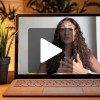Dirt on Your Dirt-Bike
- Details
- Written by Will from Holland
- Category: Modules

People are putting large dollar "toys" for sale on the internet.
Dirt bikes, boats, cars, etc. are sold on websites like ebay all the time. The sellers get responses via e-mail from prospective buyers.
One guy listed his dirt bike for sale on his dirt bike club's website. What could be safer than that?
Very quickly, the guy received a lot of responses, but one person in particular wanted to buy the bike right now. Nice!
But, there was one hitch: the buyer wanted to pay with a "certified" check, made out for more than the cost of the bike. "But that's okay," the buyer said, "I trust you, so you can send the balance back to me, and then I'll pick up the bike."
The seller talked with friends and was told that "Certified" and "Cashiers" checks are like cash. (They are if they are real.) He deposited the certified check in his checking account, and sent the overpayment back to the buyer.
Big mistake. The "certified" check was a forgery and bounced. Forged "certified" or "cashier's" checks are getting to be a big problem. In this case the guy was out $6,000.
What happened? The guy was taken by a version of the "Nigerian" scam.
Here's what a consumer expert has got to say about these scams and how to avoid them:
[][][]
Counterfeit Cashiers' Checks
A twist on the Nigerian money scam. How the scam works:
You have a fairly valuable item for sale at one of the online sales or auction sites. Sellers of such items as cars, furniture, boats, and even purebred puppies and horses have been hit by this scam. A potential customer calls from overseas—usually from Nigeria or West Africa but they could be from anywhere. Let's say you've advertised a car for $2,000. They say they want to buy your car. To pay for it, they'd like to have a creditor in the U.S. who owes them $7,200 send you a cashier's check for that amount. You deposit that check in your account and when it's cleared, they'll trust you to wire that money to them. You say yes.
What went wrong...
You receive the cashier's check for $7,200. It appears to be drawn on a legitimate U.S. bank. Your bank accepts it. You withdraw $5,200 and wire it by Western Union to the overseas address. In the next week to three weeks, the cashier's check is returned as counterfeit. The total $7,200 plus fees are taken from your accounts and you may be suspected of fraud.
How to protect yourself...
First, be extremely wary of any such offer that has you sending "change" even if it appears to come from within the U.S. For any large sale to anyone, asking for a cashier's check or money order is usually wise. But wait for the cashier's check or money order to clear—even if it takes a couple of weeks—before you deliver the goods. Alternatively, call the bank that issued the cashier's check (its name will be on the check) and ask if they issued it.
[][][]
Although we are more internet savvy than many adults, we're also the ones falling for these types of scams. Why?
We don't pay attention, or don't think about what can happen.
We've got two easy solutions for you here...
-
We recommend that if you sell your "toy," that you never do business with a stranger who wants you to send them money back from their check.
-
However, when you do, make sure you wait for the buyer's check to clear into your account before you take any action whatsoever—even if the check is made out for the exact amount. Don't reimburse any money without knowing you got yours for sure! Keep in mind that it can take up to three weeks for a check to clear into your account.














